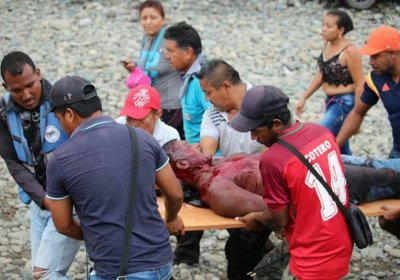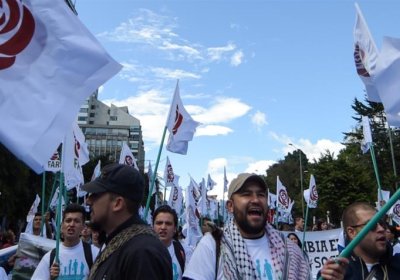Amid several controversies in the voting process, Colombians went to the polls on March 11 to elect 166 legislators to the House of Representatives and 102 senators.
Revolutionary Alternative Forces of the Commons
Colombia’s Revolutionary Alternative Force for the Commons (FARC) said on March 8 it was cancelling its presidential election bid.
The Colombian National Police massacred between 8 and 16 people, and wounded more than 50, in the municipality of Tumaco, Narino on October 5. The attack was directed against protesting coca growing families demanding the government fulfil its commitments to voluntary eradication programs.
Then, on October 8, the National Police attacked an international team sent to investigate the massacre. The police used tear gas and stun grenades to disperse representatives from the United Nations, the Organization of American States, and a journalist from the Colombian weekly, Semana.
Members of the National Political Council of the Revolutionary Alternative Forces of the Commons (FARC) rejected the threats and violence that have claimed the lives of 25 people since signing peace accords with the government last November.
“Since the signing of the peace agreement, five former combatants, nine militiamen and 11 relatives of members of the FARC have been murdered,” the group said in a statement on October 2.
Just days before he was set to speak at the 2013 Trade Union Congress (TUC) Conference in Britain, Colombian union leader Huber Ballesteros was arrested and imprisoned in his home country on trumped-up charges of rebellion and financing terrorism.




